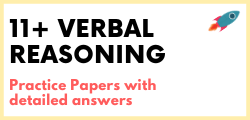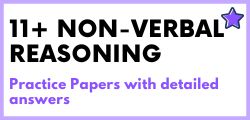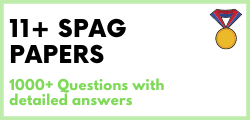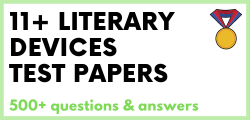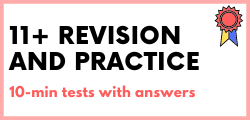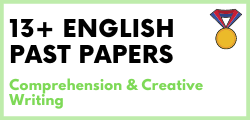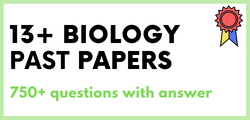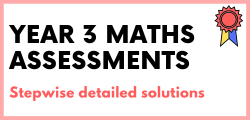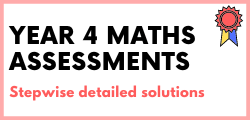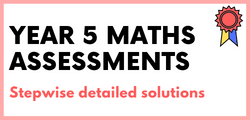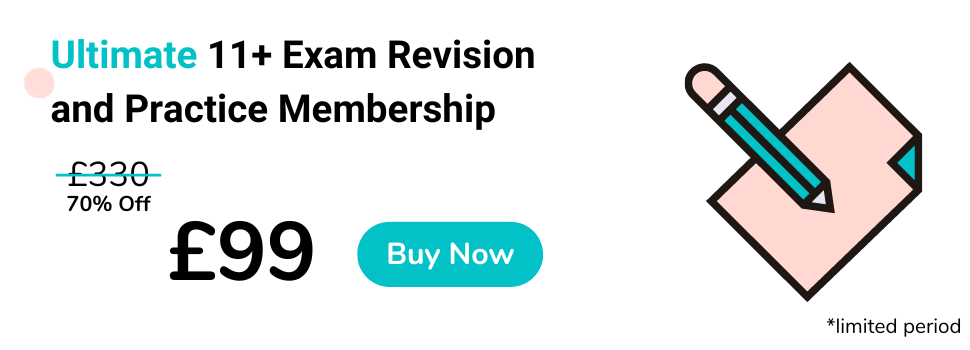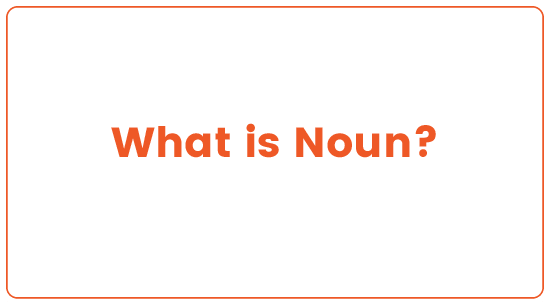
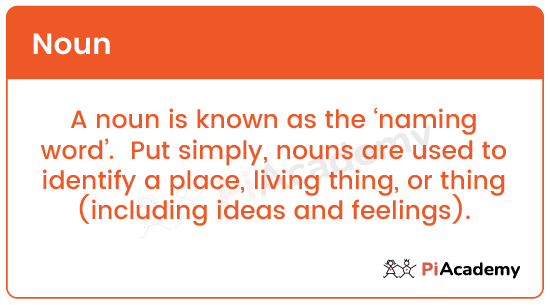
Let’s understand what is a noun and explore different types of nouns with examples!
A noun is known as the ‘naming word’. Put simply, nouns are used to identify a place, living thing, or thing (including ideas and feelings).
Examples of nouns that identify a place:
- Newcastle
- Coronation Street
- home
- supermarket
Examples of nouns that identify a living thing:
- Molly
- Rover
- dad
- woman
Examples of nouns that identify a thing:
- apple
- envy
- aeroplane
Below, we will learn all about nouns. Use our easy-to-follow guide to aid your understanding of how to use nouns within your sentences!
When Do We Use Nouns?
In English, we use nouns to indicate subjects, direct objects and indirect objects within a sentence.
Nouns as subjects
All sentences will have a noun or noun phrase as a subject. The subject is the place, person or thing that drives the verb in the sentence.
Examples of nouns as subjects:
- The dog chased the ball.
- The dog is the subject of the sentence as it is the thing that actions the verb.

Nouns as objects
Nouns can also be an object of the verb in sentences. They can either be a direct object (it is affected by the action of the subject) or an indirect object (the recipient of a direct object).
Examples of nouns as direct objects:
- The dog chased the ball (the ball is the direct object).
- He stroked the cat (the cat is the direct object).

Examples of nouns as indirect objects:
- Fatemah gave the present to her friend (her friend is the indirect object – they are the recipient of the object – the present).
- Hana told her mother the truth (the truth is the indirect object and her mother is the object).

How Many Types of Nouns are There?
There are many different categories of nouns. We can categorise all nouns into two main types: common nouns and proper nouns.
What are proper nouns?
Proper nouns are names given to something which requires capitalisation within sentences. They are names given to specific people, places, and titles. In contrast to common nouns, proper nouns must always be capitalised wherever they appear in a sentence. Common nouns only require capitalisation at the start of the sentence.
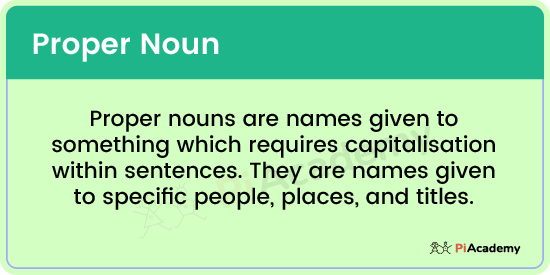
Examples of proper nouns:
Specific names:
- David
- Uncle Tim
- Aunty Mandy
Names of places/ objects of importance:
- London
- Big Ben
- The Tyne Bridge
Names of brands:
- Coca Cola
- Heinz
- Tetley
Specific and unique concepts of importance:
- Tuesday
- November
- Saturday
(Note: seasons and points of the compass are not written using capital letters.)

What are Common Nouns?
Common nouns are names of non-specific things which may be generic in nature. For example, we use capitalisation to state the proper noun when we refer to a specified ‘Aunty Mandy’, however when we talk about a generic aunty, we do not capitalise. The same goes with generic names of places and objects. Common nouns can be further categorised by concrete nouns, collective nouns and abstract nouns.
What are concrete nouns?
Concrete nouns are things that we can see or touch in a physical form
Examples of concrete nouns:
- table
- chair
- bench
- supermarket
- train
- book


What are collective nouns?
Collective nouns are names for groups of things or people.
Examples of collective nouns:
- A flock of birds
- A pack of wolves
- A group of dancers
- A team of players
- An army of soldiers
- A bunch of grapes
- A forest of trees


Collective nouns are mostly referred to as singular, but there are exceptions to this rule. We can refer to a collective noun as being plural when the group acts upon things as individuals. Here are two examples using the same collective noun:
- The team are all playing in different positions.
In this example, all the players are working as individuals within their team. They may be moving in different directions, so we can refer to this collective noun as plural.
- The team is working hard.

In this example, they are all working together as one for a common goal, so we can refer to it as singular.
What are abstract nouns?
Abstract nouns are things we know are present, but we cannot see in a concrete or absolute form. They are not concrete objects. Abstract nouns include things we feel and experience in the world.
Examples of abstract nouns:
- love
- jealousy
- envy
- grief
- beauty
- confidence
- hatred
- trust
- wisdom
- talent
- pleasure
- sadness
- idea
- information
- belief
Other Categories of Nouns
There are other categories of nouns that we use within sentences. These are count and mass nouns, possessive nouns, and pronouns.
What are count and mass nouns?
All nouns are either countable or uncountable (mass nouns). This means that we can either separate the noun into individual units and count them, or we cannot.
For example:
- One dog
- Two dogs
dog is a countable noun.
Examples of uncountable (mass) nouns:
- coffee
- bread
- salt
- happiness
- fear
- paper
What are possessive nouns?
A possessive noun shows ownership of something. Possessive nouns usually use an apostrophe to indicate ownership.
Examples of possessive nouns:
- This is Tony’s car (singular possessive noun).
- The cat stole the dog’s treats (singular possessive noun).
- The cat stole the dogs’ treats (plural possessive noun).

What are pronouns?
Pronouns take the place of certain nouns within a sentence. They help us shorten our sentences and avoid boring repetition.
Examples of pronouns in sentences:
- Tonya went to the store and she bought some milk (we are replacing Tonya’s name to avoid repetition).
- My children went to see the movie, but they didn’t enjoy it (we do not need to repeat ‘my children’, so we can replace the phrase with ‘they’).
Sneak Peek of Pi Academy Resources
Now that we have explored nouns in detail, why not try out our practice papers and exercises on our website!









